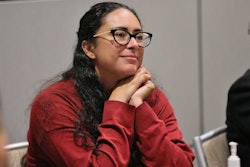 Dr. Deborah Santiago, co-founder and CEO of Excelencia in Education.
Dr. Deborah Santiago, co-founder and CEO of Excelencia in Education.
To answer that question, Excelencia reached out to seven Hispanic Serving Institutions (HSIs), a federal designation applied to institutions with a student population of at least 25% Latinx. They published their findings in a brief titled, Beyond Completion: Post-Completion Efforts at Hispanic-Serving Institutions.
“A lot of the institutions were wrestling with an authentic way for them to understand and measure their impact post completion,” said Dr. Deborah Santiago, co-founder and CEO of Excelencia. “Do we have an overt and common definition of what post-completion is? Can we follow up with students two to three years after graduation? Five years out, is [their job] aligned to their major, or is it extraneous?”
The brief does not offer one-size-fits-all solutions. But it does suggest institutions deepen their data collection efforts, build connections with local industries and employers looking to diversify, and push institutional leadership to intentionally serve its alumni students. It also identified three characteristics that led to increased post-graduation success for Latinx students: culturally relevant practices specifically chosen to accelerate Latinx post-completion success, customized metrics and measures to track students after graduation, and demonstrated progress in closing equity gaps in post-completion success.
Excelencia predicts that Latinx college enrollment will continue to increase, and, according to the U.S. Department of Labor, the workforce will be 20% Latinx by the end of the decade. Santiago said she hopes the brief can offer framework, parameters, and give readers a measure of confidence “that, if these institutions can take this on and find ways to include post-completion as part of the student lifecycle and experience, they can do that as well.”
Each institution in the brief was asked to define for itself what post-completion success meant, the data sources and measurements they used to assess it, success strategies they employed to improve outcomes, and any post-completion success practices.
At the University of Arizona, a qualitative and quantitative approach to data analysis is taken, using national and state resources as well as post-graduation surveys of its Latinx students. The university also offers “micro-internships,” paid opportunities to work with local community partners to build student workforce skills.















